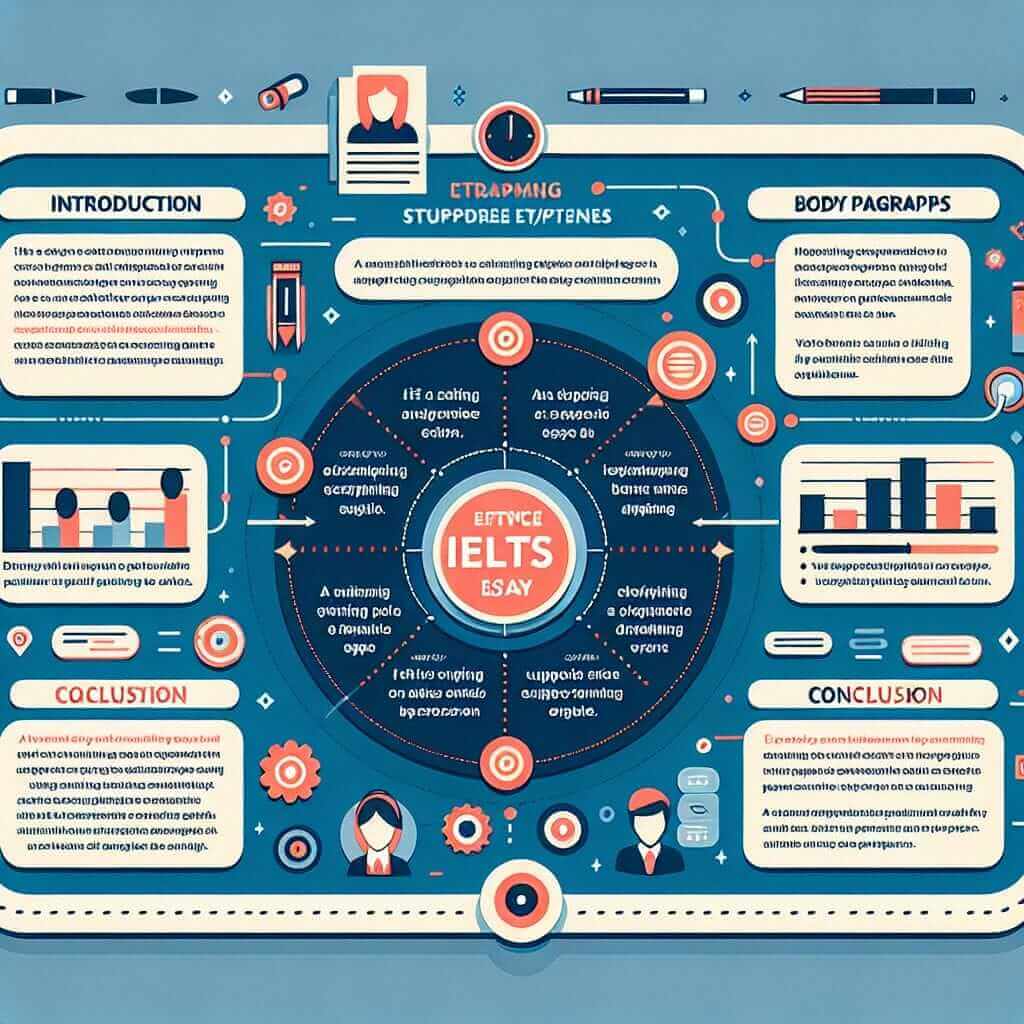As an IELTS instructor with over 20 years of experience, I’ve seen firsthand the challenges students face with the writing section, particularly the essay. Many students, even those with strong English skills, struggle to achieve a Band 7 or higher. This is often due to a lack of understanding of what the IELTS examiners are looking for and how to effectively structure and articulate their thoughts in essay format.
This comprehensive guide aims to equip you with the knowledge and strategies needed to write a good IELTS essay, one that not only meets but exceeds expectations, propelling you towards your desired band score.
Understanding the IELTS Essay Task
Before diving into the specifics, it’s crucial to understand what constitutes a good IELTS essay. The IELTS writing task 2 assesses your ability to:
- Respond to the prompt: This means directly addressing the question or topic given and not deviating from it.
- Present a clear and well-structured argument: Your essay should have a clear thesis statement, supporting arguments, and a logical flow.
- Use a range of vocabulary and grammatical structures: Showcasing your language proficiency is key to achieving a higher band score.
- Demonstrate coherence and cohesion: Your writing should be easy to follow, with ideas linking smoothly together.
The Key Ingredients of a High-Scoring IELTS Essay
1. Structure: Building a Solid Framework
A well-structured essay is like a well-designed building – it’s stable, easy to navigate, and aesthetically pleasing. Here’s a tried and tested structure for your IELTS essay:
Introduction:
- Start with a hook to engage the reader and introduce the topic.
- Provide some background information or context for the topic.
- Clearly state your thesis statement, outlining your stance or argument.
Body Paragraphs (2-3 paragraphs):
- Topic Sentence: Begin each paragraph with a clear topic sentence that introduces the main idea of the paragraph.
- Explanation: Elaborate on the topic sentence, providing reasons and supporting evidence for your claim.
- Example: Use relevant examples to illustrate your points and make your argument more relatable and convincing.
- Link: End each paragraph with a concluding sentence that links back to your thesis statement and creates a smooth transition to the next paragraph.
Conclusion:
- Briefly summarise your main points and restate your thesis statement in a new way.
- Provide a final thought, recommendation, or prediction based on your discussion.

2. Vocabulary: Painting a Vivid Picture with Words
Using a wide range of vocabulary demonstrates your language proficiency and enhances the quality of your writing. Here’s how to expand your vocabulary arsenal:
- Read widely: Expose yourself to a variety of English texts, such as articles, books, and academic journals.
- Learn synonyms and collocations: Don’t just memorize words in isolation; learn them in context with their common synonyms and collocations.
- Use a thesaurus wisely: While a thesaurus can be helpful, ensure the synonyms you choose fit naturally within the context of your sentence.
3. Grammar and Accuracy: The Foundation of Clear Communication
Grammatical accuracy is paramount in conveying your ideas effectively.
- Master the basics: Ensure you have a strong understanding of English grammar rules, including tenses, articles, subject-verb agreement, and punctuation.
- Practice makes perfect: Regular writing practice is essential for improving your grammar and accuracy.
- Proofread carefully: Always allocate time to thoroughly proofread your essay before submission to identify and correct any errors.
Example: Analyzing a Sample IELTS Essay Prompt
Prompt: Some people believe that it is more important to protect the environment than it is to address poverty. To what extent do you agree or disagree?
Sample Essay Introduction:
In an era marked by environmental degradation and persistent poverty, the allocation of resources towards addressing these pressing issues sparks considerable debate. While some argue that environmental protection should take precedence, others contend that poverty eradication is paramount. This essay will argue that although both issues merit attention, addressing poverty should be prioritized due to its immediate and far-reaching consequences on human well-being.
Top Tips for IELTS Essay Success
- Plan before you write: Invest time in brainstorming ideas, outlining your essay, and formulating a clear thesis statement.
- Use transition words effectively: Words like “however,” “furthermore,” and “in contrast” help to guide the reader through your argument and create cohesion.
- Vary your sentence structure: Use a mix of simple, compound, and complex sentences to make your writing more engaging and sophisticated.
- Stay on topic: Avoid introducing irrelevant information or digressing from the main point.
- Practice under timed conditions: Familiarize yourself with the time constraint of the IELTS writing test by practicing essays under timed conditions.
Conclusion: Your Journey to a Stellar IELTS Essay
Writing a good IELTS essay is a skill that can be cultivated with practice, perseverance, and the right guidance. Remember to focus on understanding the task requirements, structuring your essay effectively, using a rich vocabulary, and maintaining grammatical accuracy. By following the tips and strategies outlined in this guide, you’ll be well on your way to crafting impressive essays and achieving your desired IELTS score. Good luck!